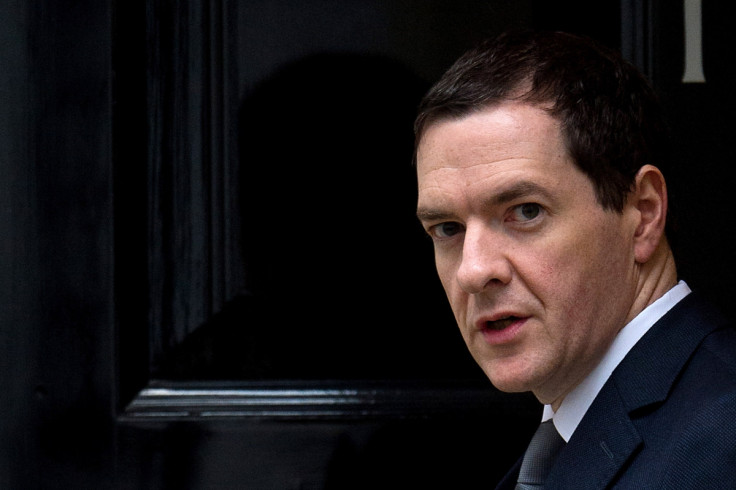Chancellor George Osborne running out of options to reduce UK budget deficit warn economists

The Centre for Economics and Business Research (CEBR) expects the UK government to face a £30bn (€37.8bn, $42.3bn) deficit by 2019-20, and has said that Chancellor George Osborne is running out of option to reduce Britain's deficit.
The figure is in stark contrast with Osborne's stated aim of achieving a £10.4bn surplus. The CEBR also said that the events following the Budget, such as a reversal of proposed cuts to Personal Independence Payment and the resignation of Iain Duncan Smith, showed that the chancellor had little room for manoeuvre.
"Osborne has also grasped that cutting long-term investment such as infrastructure is ultimately self-defeating as it reduces long-term growth prospects," said senior economist Alasdair Cavalla. "Given the multiple constraints on the chancellor, and the real uncertainty associated with the assumptions underlying fiscal consolidation, CEBR judges achieving the fiscal mandate as highly unlikely."
Figures released on Tuesday (22 March 2016) by the Office for National Statistics (ONS) showed public sector net borrowing, excluding the bailed out banks, declined by approximately £500m to £7.1bn in February compared with the corresponding period in 2015.
The figure, however, was higher than the consensus forecast of £5.9bn and while tax receipts rose at a 5.4% annual rate and central government spending fell 0.5% year-on-year, local government borrowing was higher than last year.
Overall borrowing for the first 11 months of the year stood at £70.7bn, meaning that borrowing in March will have to come in at just £1.5bn for the Office for Budget Responsibility's (OBR) full-year forecast of £72.2bn to be met. However, that is unlikely given that borrowing in March last year stood at £7.3bn.
However, some economists disagree with CEBR's forecast and suggest Osborne might in fact find a bigger than expected surplus on his hands.
"Although we think that the OBR's forecast for this year looks optimistic, we think the OBR is being too pessimistic about the economy and borrowing further ahead," Vicky Redwood, chief UK economist at Capital Economics told IBTimes UK. "We don't think we will see a further black hole open up. On the contrary, the chancellor could end up with a bigger surplus than currently estimated. That won't become clear for sometime, though."
On the other hand, by promising no further welfare cuts, the Government has ruled out yet another way of raising some money should it need to, meaning the Chancellor might struggle to meet his fiscal targets. Asked whether Osborne could run out of options to cut the deficit, as indicated by CEBR, Redwood said: "If the forecasts were to get worse, then, yes. The Chancellor is running out of options to raise more cash now that he has put so many areas of spending and taxes off-limits.
"He could still, for example, cut investment further but we think it is more likely that he would just end up letting his fiscal rule slide," she added.
© Copyright IBTimes 2025. All rights reserved.






















